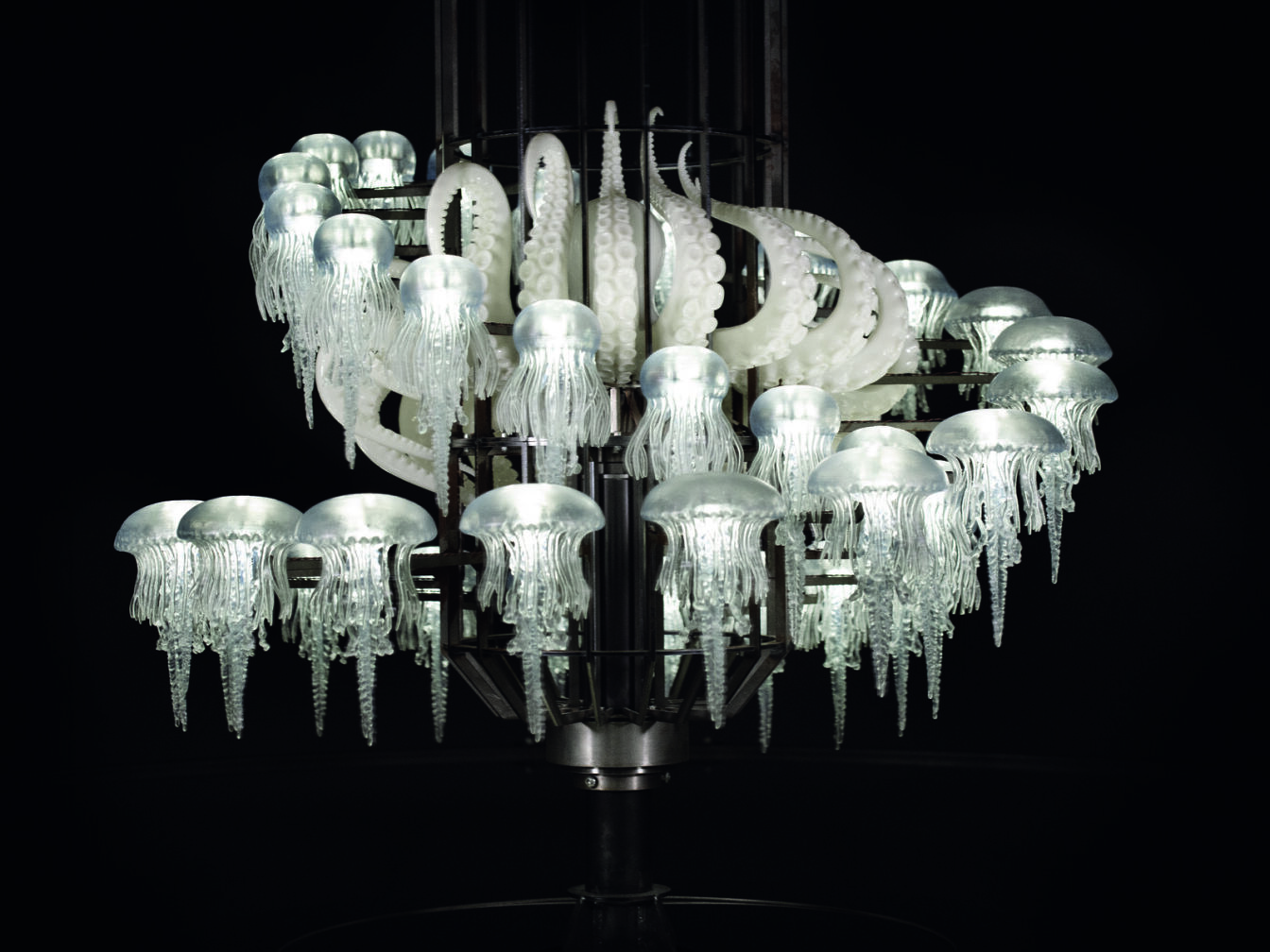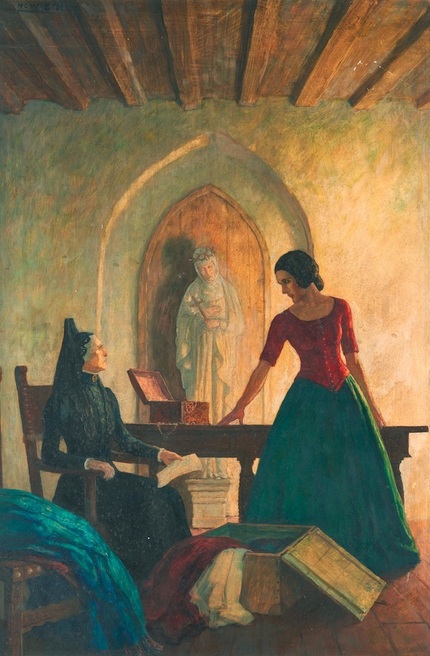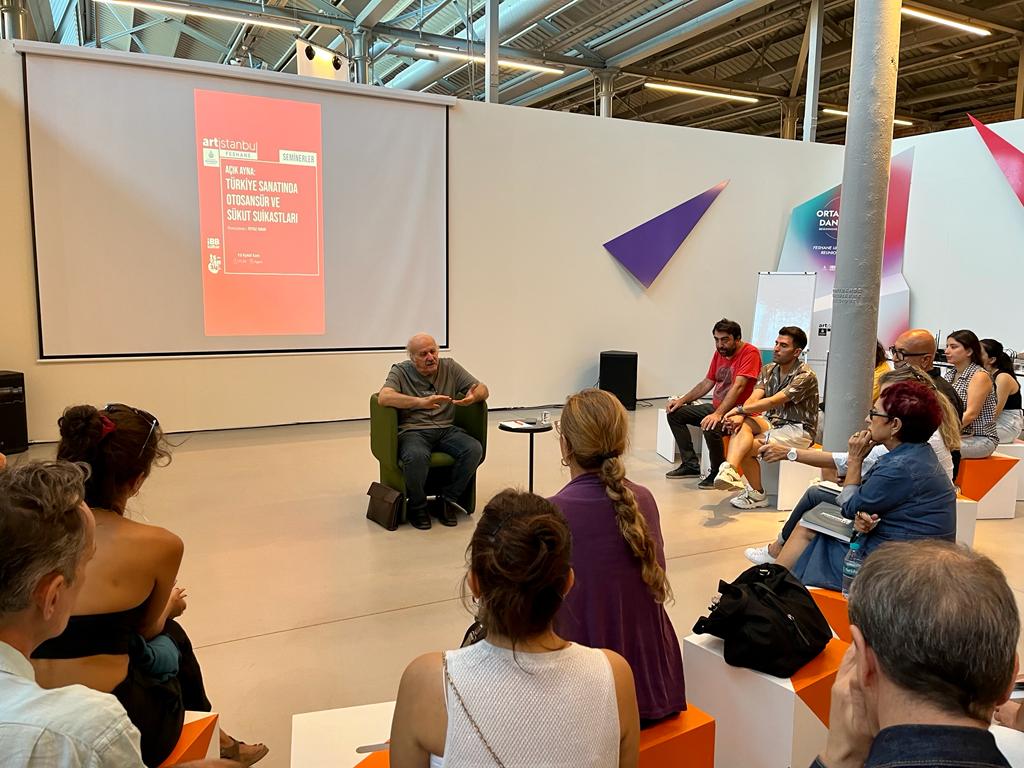Borusan Contemporary opened the season with two different exhibitions, Mat Collishaw’s Arrhythmia, curated by Alice Sharp, and Hyper Digital Forces, Borusan Contemporary collection exhibition curated by Necmi Sönmez.
Speaking at the press conference held on Sept 14, Collishaw said, he aims his artworks to develop the capacity of criticism and look to nature in different ways.
In Arrhythmia, Mat Collishaw creates a bridge between the world of art and the world of science allowing them to touch. To do this Collishaw has drawn from towering figures of art and science, Albrecht Dürer and Ernst Haeckel. He has combined the philosophies and methodologies of Dürer’s Renaissance and Haeckel’s nineteenth-centuryideas with the capacities of today’s AI and new technology to disrupt the flow or rhythm (arrhythmia means irregular heartbeat) of our normal responses to our natural world. From this he creates new readings and understandings of nature during this impending climate crisis.
Throughout Arrhythmia Collishaw examines the notion of the importance of careful observation of nature which Renaissance artists such as Albrecht Dürer and Leonardo Da Vinci believed were vital to advance our scientific way of looking at the world. In Whispering Weeds and Columbine Collishaw has animated Albrecht Dürer’s drawings The Large Piece of Turf (1503) which highlight the beauty in lowly plants at the side of the road. Collishaw’s plants move as though the wind is blowing through them, swaying as though underwater.
Drawing from Borusan Contemporary’s context alongside the Bosporus with amazing views of the currents running across the sea, Collishaw has created a new large-scale charcoal drawing Pandora with the beautiful botanical drawings of microscopic marine organisms by Ernst Haeckel combined with The Four Horsemen of the Apocalypse woodcut, circa1497/98, illustration by Albrecht Dürer. Collishaw has combined Dürer’s and Haeckel’s ideas with artificial intelligence. He fed the AI text prompts such as “marine organisms” and added them to the Dürer apocalypse image. The AI is not subject to human ways of looking at nature or disaster and creates its own new narrative from the references it finds online.
Hyper digital forces
Bringing together selected works from the Borusan Contemporary Art Collection, the Hyper Digital Forces exhibition highlights the experimental approaches prevalent in New Media Art that are shaped by different possibilities of artistic production. Since the 2000s, “digital experiences”, which are now a part of our daily lives, have opened the doors for many types of research that were not previously available for creative artists. Through its disposition that is oriented towards such research, Borusan Contemporary Art Collection traces the “new visuality” underlined by the production of digital images. The exhibition puts the images brought forward by this understanding of visuality under the magnifying glass through an approach based on comparisons. Neon sculptures, video installations, and manipulated photographs as various examples of New Media Art come together with collages, canvases, and works on paper that are shaped by classical production techniques. This coming together makes the differences between the “moving image” and the “standing image” emerge simultaneously.
Digital techniques as a new form of artistic production, have enabled artists to reconstruct their own mythologies. Mythology, which previously consisted of the stories of gods and goddesses, became data that constitute a part of daily life through democratization. Thus, art was stripped of its surrounding sanctity and sublimity and subsequently turned into imaginary spaces where contemporary emotions and thoughts surfaced in the corridors illuminated by electric light and neon. While bringing the notion of Hyper Digital Forces into question at Borusan Contemporary, which has been questioning the classical understanding of the museum since its foundation, the exhibition aims to bring a new perspective to the spaces of the Haunted Mansion, and it is positioned at the center of a holistic pattern formed by the solo presentations of the artists on each floor of the building. This pattern is important since it creates a conceptual framework that connects the personal interpretations that come up in different parts of the exhibition. Thus, Brigitte Kowanz’s work at the starting point of the exhibition and Keith Sonnier’s neon installation on the eighth floor give the viewers clues about the visual associations that have been formed.
In the area where Borusan Contemporary’s cafeteria is located, there is a floor sculpture by Ayşe Erkmen that is hardly noticeable and positions itself between existence and non-existence. The multicolored structure of this work creates a network of reference lines by implying other abstract works (particularly Yağız Özgen, Niko Luoma, Sol LeWitt, and Markus Linnenbrink) observed on different floors of the exhibition. In this way, a system of coordinates parallel to the digital approaches in the exhibition makes itself clear. The interpretation of colors by different artists in their own idiosyncratic systems without referring to the external world reveals that contemporary art can be discussed on a common ground despite being produced in different continents and geographies. Thus, the simultaneous dialog established between “moving images” and “still images” draws the viewers into the midst of a visual labyrinth.







